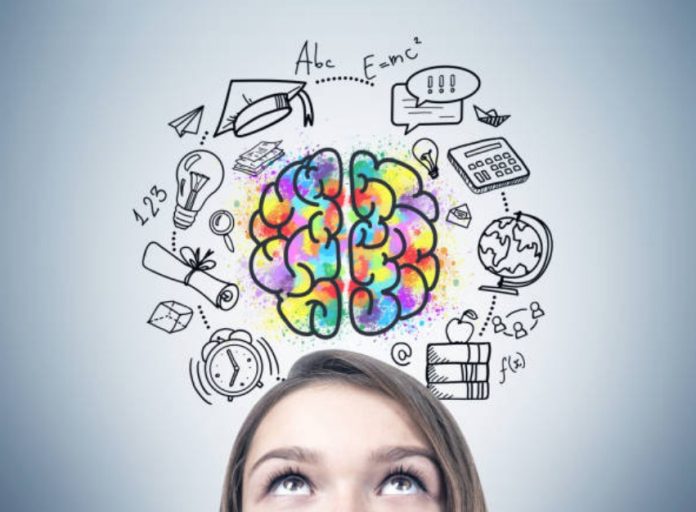By Emma Rundle
Although the term has no universally accepted or scientific meaning, intelligence may be conceived of as the capacity to solve issues, frequently using a knowledge foundation or skill set. Given that ideas of intelligence evolve throughout time and in different contexts, the source or path to intelligence is frequently the subject of intense debate.
Since the 1970s, IQ tests and psychological definitions of intelligence have come under fire for being unreliable instruments for assessing skill or intellect. Intellect scores may not accurately capture how intelligence evolves with experience.
The definition of intelligence differs culturally as well, and most IQ tests do not account for this variety. For instance, in the west, being clever and swift are synonymous. The quickest responder to a question or the one who can provide prompt research paper help is seen as the most intelligent. However, in certain societies, intelligence is equated with carefully evaluating a position before responding. The finest response is one that has been carefully considered and is thoughtful.
Intelligence and learning
Although intelligence and learning may be defined separately, there is less of a clear line between the two terms when it comes to the actual learning. In most research examining the connection between intelligence and learning, participants’ intellect and their capacity to learn are measured using similar methods. This implies that the two ideas are strongly correlated or even identical.
As a result, instructors can help their students learn by emphasizing either their students’ intellectual growth or learning strategies. But what can students do on their own? Read the answer below.
Effective ways to boost your intelligence
Many people think intellect is a permanent characteristic. However, studies have revealed that there are several things you can do to raise your IQ. Here, you’ll learn about several scientifically supported strategies for improving your cognitive abilities.
Embrace a growth mindset
Believing that you can improve your intelligence is the most crucial step you can take. The idea that your brain is like a muscle and becomes stronger with exercise is known as a growth mindset. A fixed mindset holds that you can’t really improve your IQ because it’s something you were born with.
A 2019 study found that students who learned growth mindset ideas later enrolled in more difficult math subjects and did better in those classes. Students with low test scores improved the most.
The academic performance of students who had classmates who shared their growth mindset beliefs also improved more. It will be simpler for you to accomplish your goals if you surround yourself with individuals who think you can boost your intelligence.
A sound mind is in a sound body
You already know that in order to maintain the health of your body, you should eat well, exercise, and get enough sleep. However, the same things that are good for your body are good for your mind.
Eat a balanced diet
Consuming a lot of fruits, veggies, lentils, and whole grains is beneficial for more than only your heart and weight. The same meals that improve your health can guard against your brain deteriorating. Make sure these foods are in your diet:
- Leafy green veggies
- Omega-3-rich fish
- Berries
- Coffee and tea
- Walnuts
Have a good night’s rest
In a study of primary school kids, it was shown that those who slept for less than 8 each night performed worse than those who stayed in bed at least 8 hours. Their verbal intelligence, general IQ, language ability, memory, and concentration were quite poor. Learnability is negatively impacted by even mild sleep loss. When personally I was a student and could get enough sleep I managed to do my math and other accurate sciences much better. If you don’t believe it, you can try different sleeping strategies and check it yourself.
Become fluent in a new language
Learning a second language can improve your verbal abilities, overall IQ, and reading comprehension. It doesn’t matter if you picked up a second language as a youngster or an adult; this is still true.
Take music lessons
Learning an instrument is a mental challenge that calls for multitasking. The more neural pathways you build by multitasking, the better your verbal memory, spatial thinking, reading and writing abilities will be. Therefore, you should invest in percussion lessons.
Do some reading
Learning a new subject or skill can be accomplished through reading. But reading has many advantages beyond just learning about things. Even reading the newest thriller for a while can improve your intelligence. Your vocabulary and brain structures grow as a result of reading. You can search and read information to enrich your knowledge in various fields. For example, MetroTimes.com is a good place to start. You may read more than 1.8 million words in a year by reading for little over 20 minutes each day.
About the Author
Emma Rundle is a writer, educator and blogger. As Emma is passionate about psychology, she enjoys creating content on psychology-related topics. In his free time, Emma gives workshops for students on how to become a more efficient learner.





























![“Does Everyone Hear Me OK?”: How to Lead Virtual Teams Effectively iStock-1438575049 (1) [Converted]](https://www.europeanbusinessreview.com/wp-content/uploads/2024/11/iStock-1438575049-1-Converted-100x70.jpg)




